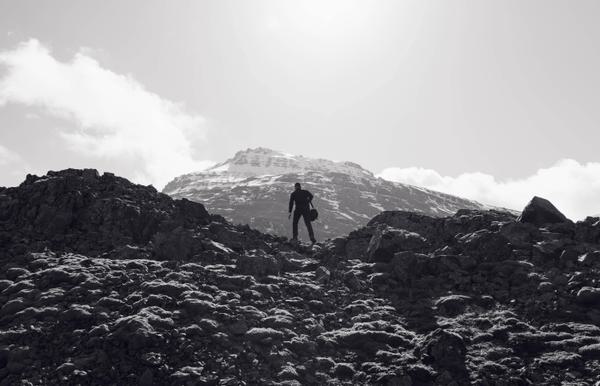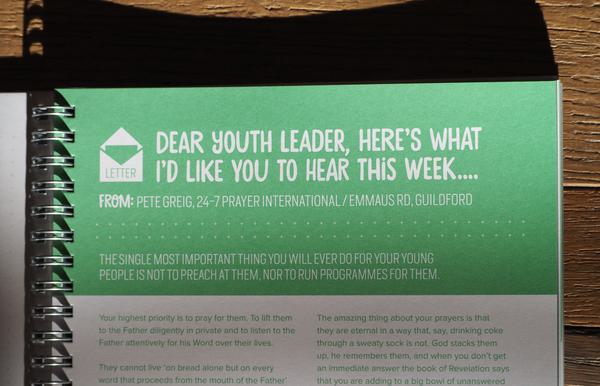We ran this liveblog from March to May 2020 to help youth leaders respond to the Covid-19 pandemic. All the content shared can still be accessed and searched for via the sidebar.
SOME HIGHLIGHTS FROM THE LIVEBLOG ARCHIVE:
There are 0 new posts since the page loaded. Refresh
Kintsugi Hope online wellbeing groups
Kintsugi Hope are giving the chance for people to run their wellbeing groups online. You can find information about it, including a downloadable brochure, on their website. They've also moved the training for group leaders online.
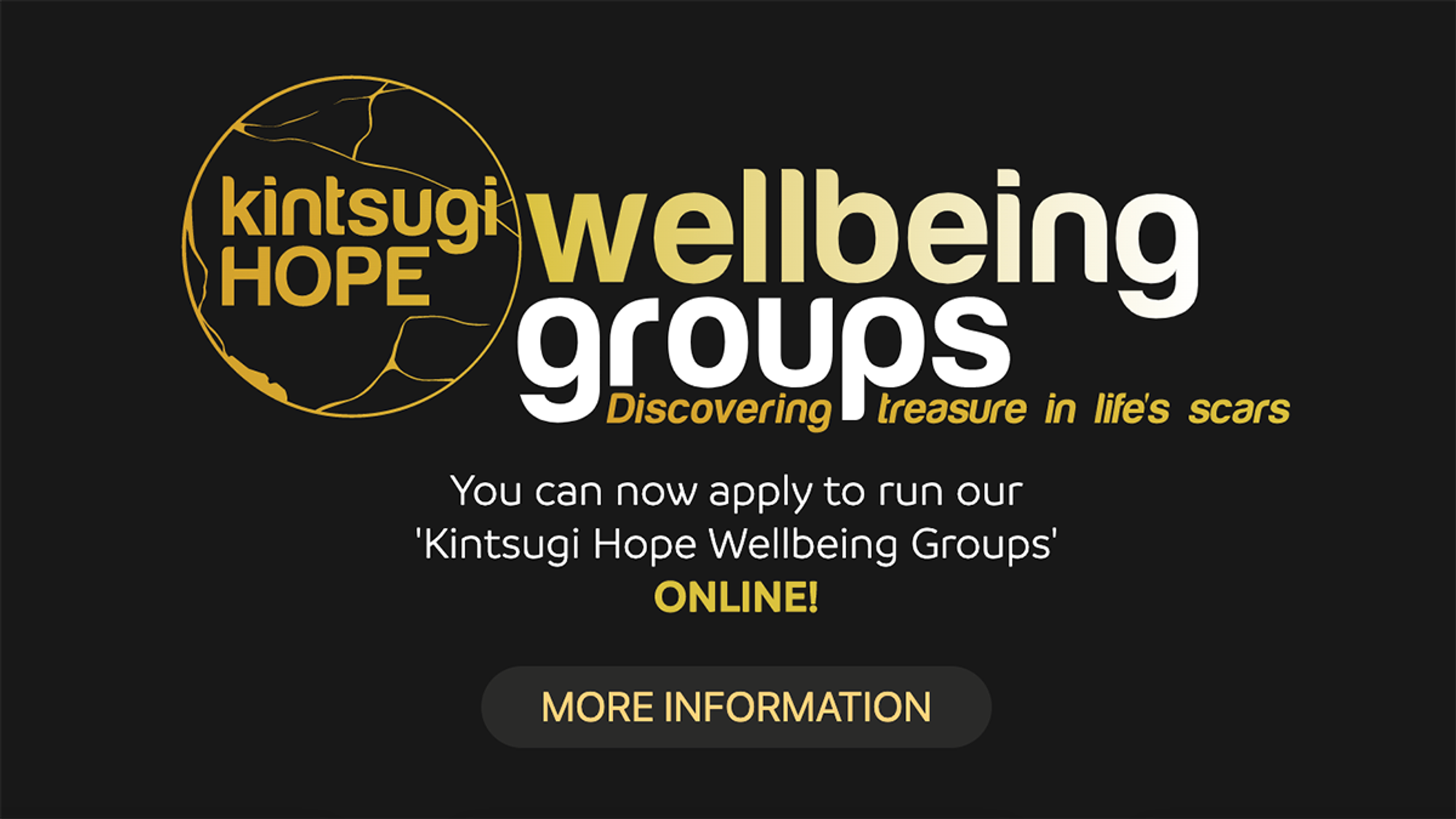
Lockdown listicle: 99 things for young people to do over Easter
Happy Friday! (If you're still following the days of the week) With the weekend comes a new blog post – this one's from Lahna Pottle, all about the fun, thoughtful and creative things young people could try out over the Easter 'holidays'.
"The Easter holidays are going to look a little bit different this year. Ok, a LOT different. And young people are going to need plenty of ideas and inspiration for things to do to have fun, keep busy, and spiritually, emotionally, physically and mentally fed..."
Lockdown listicle: 99 things for young people to do over Easter
How can you stay engaged, educated and entertained in this age of isolation? Here's 99 ideas for young people to try this Easter.
The Friday 3x3: Easter, mental health and digital burnout
3 MINUTES, 3 QUESTIONS, EVERY FRIDAY AT 3 O'CLOCK
We are scattered, physically distanced and isolated. Yet we’re going through similar experiences in a way that is entirely new. We have never done this before, and everyone is improvising. We thought it might be important to capture some of what this glorious community is doing, thinking and feeling during an entirely new experience.
But things are changing so rapidly we didn’t want to just ask once.
Welcome to this week’s Friday 3x3 - a way to take the temperature of the youth ministry community during the Coronavirus pandemic. Every Friday at 3pm we’ll ask three questions which should take you about three minutes to answer. This week we’re anticipating Easter, hearing about how you’re managing your mental health and asking about digital burnout.
Come back to the blog next week for results in our Monday Report.
Podcast Special #6: Mental Health tips
We’re creating a special series of the Youthscape podcast, which will continue to appear at semi-regular intervals during the current global crisis.
The latest edition has just gone live; in it Rachel talks to Dr Kate Middleton from the Mind and Soul Foundation about what young people might be dealing with in terms of their mental health, and some practical advice for them. Much of it also applies to youth leaders! Martin and Rachel also own up to which cringey films/TV shows they've stooped to watching during lockdown...
You can listen now here, and subscribe to make sure you never miss an episode, here.
YS Special Edition 6: Mental Health tips with Dr Kate Middleton
How can we help young people look after their mental health during this time? Rachel talks to Dr Kate Middleton from the Mind and Soul Foundation about some practical tips for young people (and youth leaders!)
Young Minds' self-care tips from young people
In this time when we're all so aware of our physical health, let's not neglect the mental and emotional health of the young people we work with. As a starting point, Young Minds have gathered some self-care tips from some of their young bloggers.
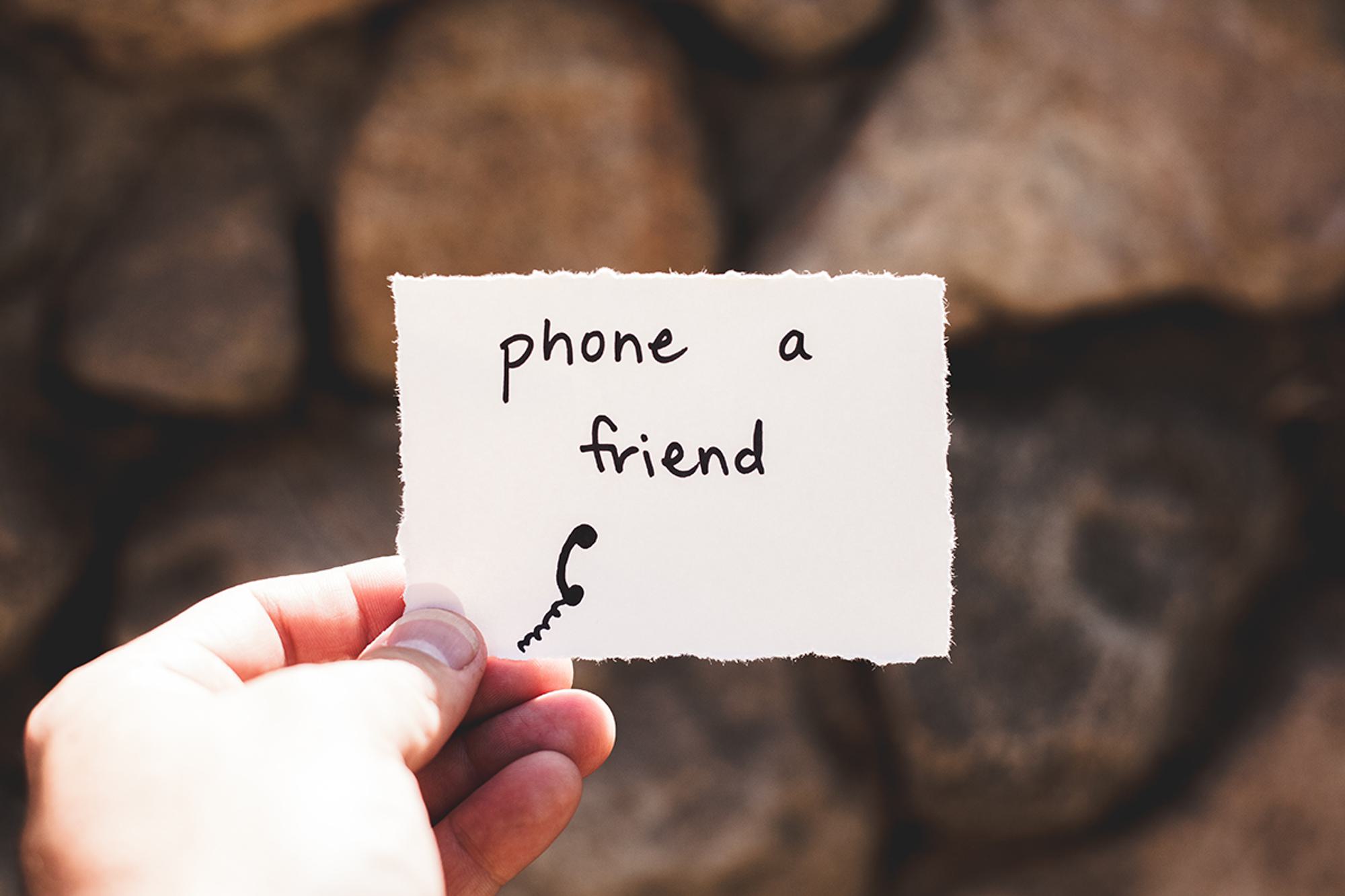
Anxious & overwhelmed? 3 ways faith can sustain you amidst chaos
There's a new blog post live at Youth Work News, courtesy of our Director of Research Lucie Shuker. You can find it via the adjacent link, and here's a glimpse of what she has to say:
"We believe we were created through and by love, and that God looks upon us ‘with eyes brighter than the sun’ (St John of Kronstadt). We believe we are known. Seen. Accepted in all our frail humanity by God who has reconciled us to love. Our first task is to remember that and find small practices that help us know it, not just intellectually, but emotionally. From a daily awareness of that love comes a range of other insights that ground us and keep us from falling apart..."
Anxious & overwhelmed? 3 ways faith can sustain you amidst pandemic chaos
Lucie Shuker draws on rich theological resources as she explores the place of God & faith amidst the chaos, sadness and stress wrought by COVID-19.
Quarantine idea #3: Stop motion switch up
In the coming weeks we’re posting simple ideas for online youth work here on the liveblog. So far, we’ve thought about taking young people on Virtual Tours of exciting locales from the comfort of their own home (admittedly, that phrase works better when you’re not on mandatory lockdown) and we’ve thought about how young people could invest in their communities and reach out to the elderly and vulnerable.
Now let’s get creative. Want to switch up how you do youth group notices, or looking for an artistic, fun new way to get people talking and creating? Why not make a stop motion movie?
Stop motion is a form of animation where a video is made by taking a number of photos and moving things around bit by bit between each shot. When the images are then played back sequentially, what was static is now moving. Stop motion animation is behind well-loved classics like Wallace and Gromit, Shaun the Sheep and Nightmare Before Christmas. Stop-motion allows you to make a high-quality film using minimal resources.
Want to inspire the young people you work with to try something they’ve never done before? Explain the concept of a stop motion film and encourage them to make their own. You could use this as a way of making a collaborative youth group movie. If you decide on a storyline, each young person could film from 30-60 seconds of images, and those individual scenes could be collected and edited together to make a complete animation.
Here is a step-by-step guide you / they can work through to make the movie. There’s also a handy how-to video below:
STEP 1: Download a stop motion video app and familiarise yourself with how it works. Apps such as Stop Motion Studio are free to use and put the movies together for you. All you have to do is take the photos and move the characters.
STEP 2: Choose your characters. The cast of your movie is completely up to you! You could use Lego people, stick men, soft toys or even everyday household items. Toy Story 4 was headlined by a plastic spork, so shoot for the moon.
STEP 3: Come up with a rough storyline. Nothing too long or complicated. It can be as easy as having a character climb the stairs or fight an opponent. Remember for each move your character makes you’ll have to take a load of photos so the simpler the scene, the better.
STEP 4: …Action! Time to get the camera rolling. Open the app on your device and set up the first scene. Take your photo. Next, move the characters slightly – it could be adjusting an arm, moving them forward an inch, etc. Once you’ve set your new scene you can take another photo. Continue moving your characters bit by bit for each new photo. Once you’re happy they’ve reached the end of the scene, hit play and watch your stop motion movie from start to finish.
Together Apart: Session #3 download
‘Together Apart’ is a short series of sessions enabling you to explore life and faith with young people, designed specifically for the context of online youth work. And it's completely free! The first two sessions, released last week, can be downloaded here. You can catch a new session of Together Apart every Wednesday here on the liveblog.
Each session includes a short programme around a theme, along with copious notes on everything that a youth leader might need to consider when running the session online. We’re not claiming that this is a revolutionary new youth work model – but we hope that it will prove really useful in the immediate context in which we find ourselves. As always, we welcome your feedback!
Session Three, written by Youthscape's Hannah Bradley, explores the theme of generosity (download it via the adjacent link). What would you do with £1 million?
Open Doors Youth - Isolated Church resources
Our friends at Open Doors Youth have created resources for young people and youth leaders for this time of isolation, learning lessons from the persecuted church. You can subscribe here to receive weekly emails, videos, podcasts and reflections around these themes: uncertainty, isolation, lack and fear.
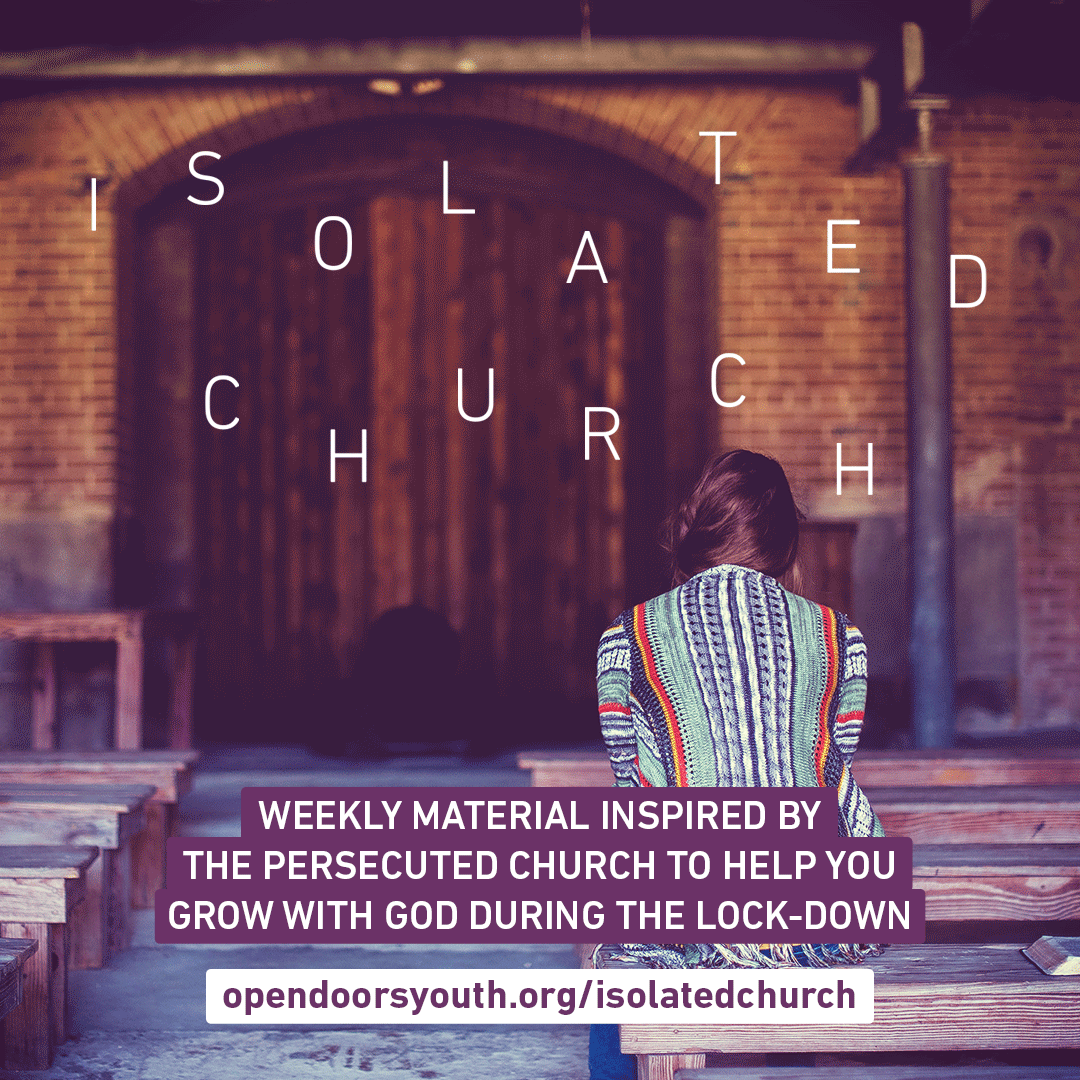
The Story: Free poster 1 – ‘Everything you need to know about self-harm’
We’ve been rummaging around in the digital basement, and found some old posters from the first few editions of our research quarterly The Story, way back in the heady years of 2015 and 2016. We thought we’d share one a week with you, as a free download, in case you find yourself with a little more time for reflection and reading. If that’s not you, stick it in a file marked ‘Later’. You can download the poster as a PDF via the adjacent link.
Although much of this is still very relevant, there has been lots of research published since we produced our first poster on self-harm. You can read some of it in this Research News blog that we published last year.
We also released the spring edition of The Story this week: you can read it online here, or to get the full version in print, subscribe to The Story here.
The Story poster 1: Self-harm
A free downloadable PDF from our research quarterly The Story, on 'everything you need to know about self-harm'.
A great time to explore the spirituality of games
At the best of times, we turn to video games to keep children busy or provide some light entertainment and bonding. Now, with much more time inside it’s easy simply to ramp up that same approach.
However, video games can offer much more than that for young people. Like any media, they are a new way to tell stories, to engage with the world, to make sense of life. But as well as that, they can also offer a powerful space in which to find calm, hope, peace and even a bit of control when the world around us feels far from that.
The challenge is finding the games that offer these things at the right time. Writer and broadcaster Andy Robertson (who was one of the contributors at last November’s National Youth Ministry Weekend) has put together The Family Video Game Database as a resource to help you do just this. It’s a huge collection of information about video games arranged into lists.
Along with the usual lists about playing together on the couch, or online, there are some more interesting ones that point to games with a deeper side. For example:
One of the lists in the database has been put together by the LTN (Love Thy Nerd) Christian gaming community to highlight games that challenge us to love our neighbour. Other interesting highlights include a list of games that offer tough ethical decisions, games that invite you to inhabit another world or walk in someone else’s shoes.
If you’ve never played games yourself before, the site encourages you to try out the games picked out specifically as your first video game.
The full set of lists in the database are here and you can search for any game by platform, genre, theme, PEGI rating, here.
Interested in further reading? You can also find Andy's book: "Exploring Spirituality in Video Games" here and news about an upcoming book here.
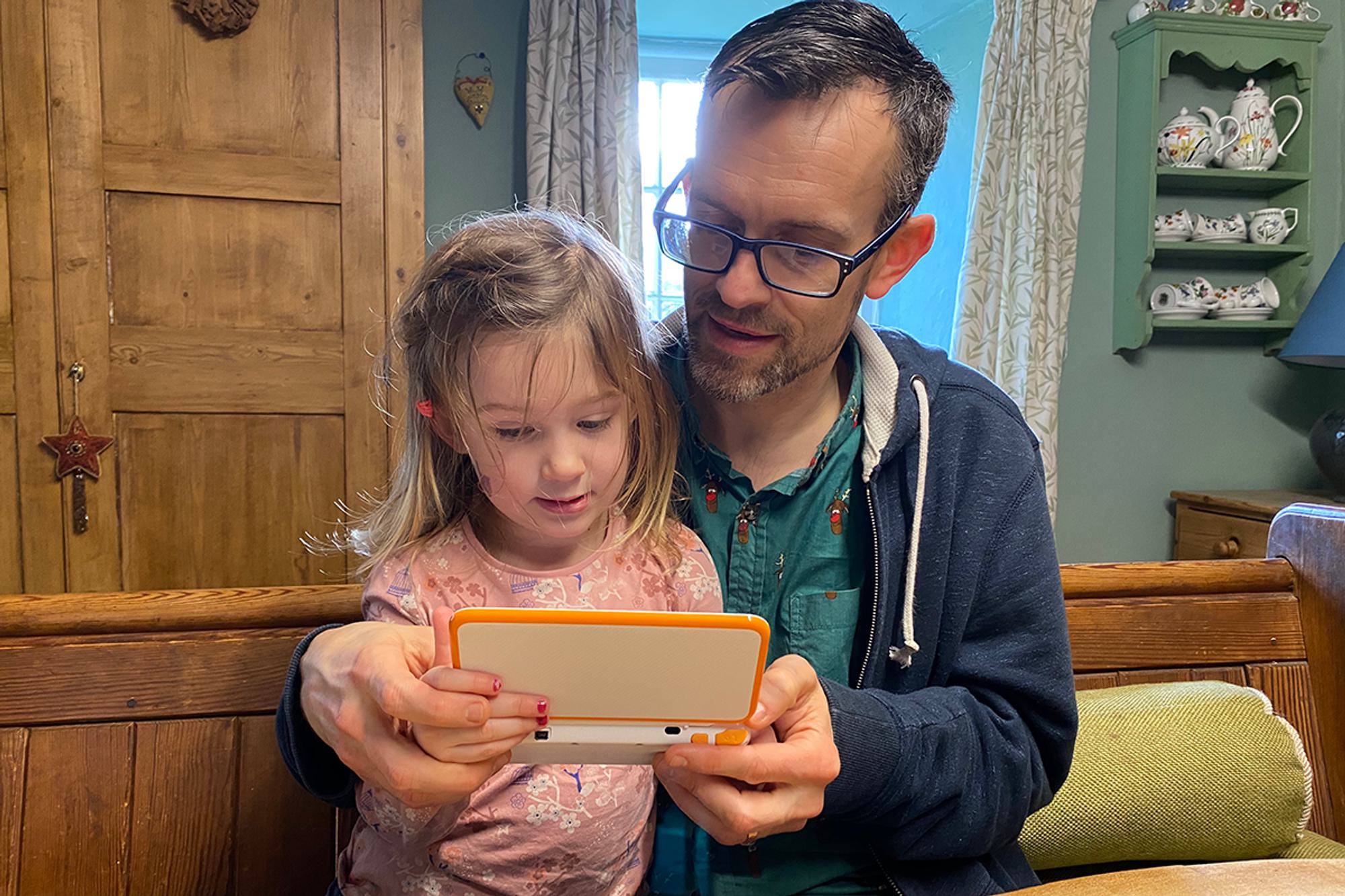
Quarantine idea #2: how to serve the elderly & vulnerable
Want a way of continuing to share experiences as a youth group from the comfort of your own home? In the coming weeks we’re posting simple ideas for online youth work here on the liveblog, you can read idea #1: Virtual Tours, here.
During recent weeks, it’s been incredible to see people come together and offer support to one another during such difficult times. Here's a way to engage your group in the midst of quarantine, and help them to invest in their community:
IDEA #2: BRING GENERATIONS TOGETHER - INVITE YOUNG PEOPLE TO WRITE TO AN ELDERLY PERSON IN THEIR COMMUNITY.
We know that some of those most at risk now are the elderly, and that elderly people are already some of the most isolated in our communities. A letter, email or card could brighten up someone’s day and bring real encouragement. Here are the practical steps:
- Identify older, vulnerable people in your community who would be open to receiving a message from a young person. If you work for a church, identify isolated older people in your congregation and ask for their home/email addresses. If your youth work context is not church based, how about contacting a local care home? Ask them if they would be up for receiving correspondence from your youth group and distributing the message to residents. If they are worried about the risk associated with letters coming in, check to see if emails would be appropriate. Emails could be printed off on site and delivered to rooms or read aloud.
- Get the young people you work with on board. Use this as an opportunity to talk to your young people about social action and caring for their neighbours. Tell them they can be creative as they want to be with their messages. If they’re struggling with what to write, point them towards a Bible passage, poem or song lyrics. Challenge them to see this practical exercise as a way of looking after some of the most vulnerable people and a way in which they can potentially make a real difference in someone’s day.
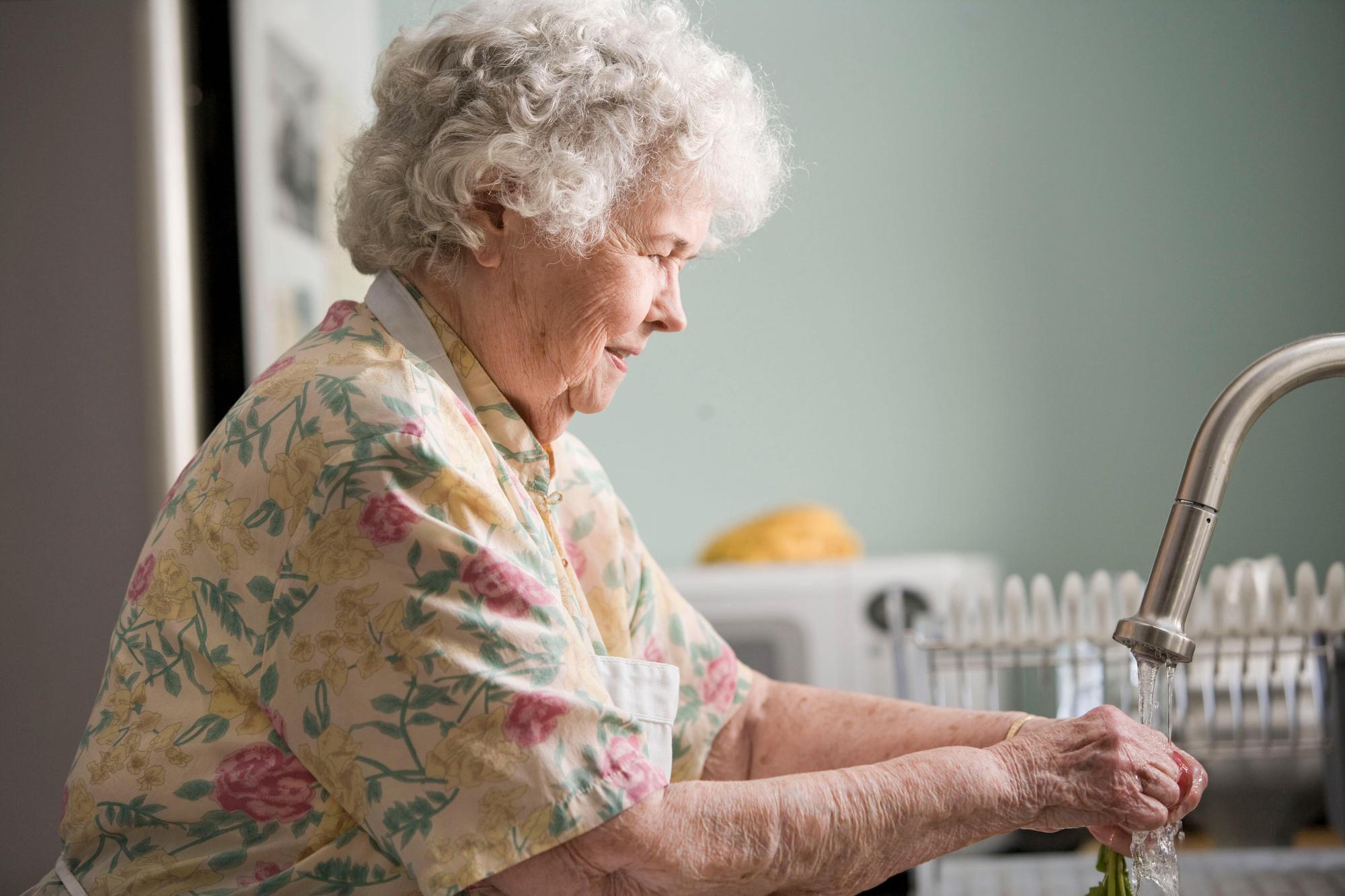
Supporting young people with autism
The Association for Child and Adolescent Mental Health have uploaded a podcast to talk about how to help young people and children with autism during this pandemic. They give some practical tips on how to help manage anxiety, maintain structure and explain the situation to young people.
Podcast Special #5: Safer Places Online
We’re creating a special series of the Youthscape podcast, which will continue to appear at semi-regular intervals during the current global crisis.
The fifth and latest edition has just gone live; in it Martin Saunders talks to Justin Humphreys about the updated safeguarding guidance that Youthscape and ThirtyOne:Eight have worked on together and Martin and Rachel reflect on what youth work practice will look like coming out of the pandemic.
You can listen now here, and subscribe to make sure you never miss an episode, here.
YS Special Edition 5: Safer Places Online with Justin Humphreys
In the latest of our special edition podcasts, Martin welcomes back Justin Humphreys from ThirtyOne:Eight to the Youthscape Podcast. They talk about creating safer places for young people online and looking out for vulnerable young people.
Digital tools for churches
A group of collaborators from across the Church have created a crowdsourced Google Doc with advice for churches during the pandemic. It's regularly updated and includes tips for live-streaming, links to webinars, advice for crisis management and links to helpful blog posts.

Faith at home resources
We want to reach young people where they are - and right now, young people are at home more than ever before. If you want some ideas for how to support parents/families as they do this, or if you're a youth leader juggling youth work and homeschooling, Kitchen Table has a great list of "faith at home" resources here and some helpful advice here.
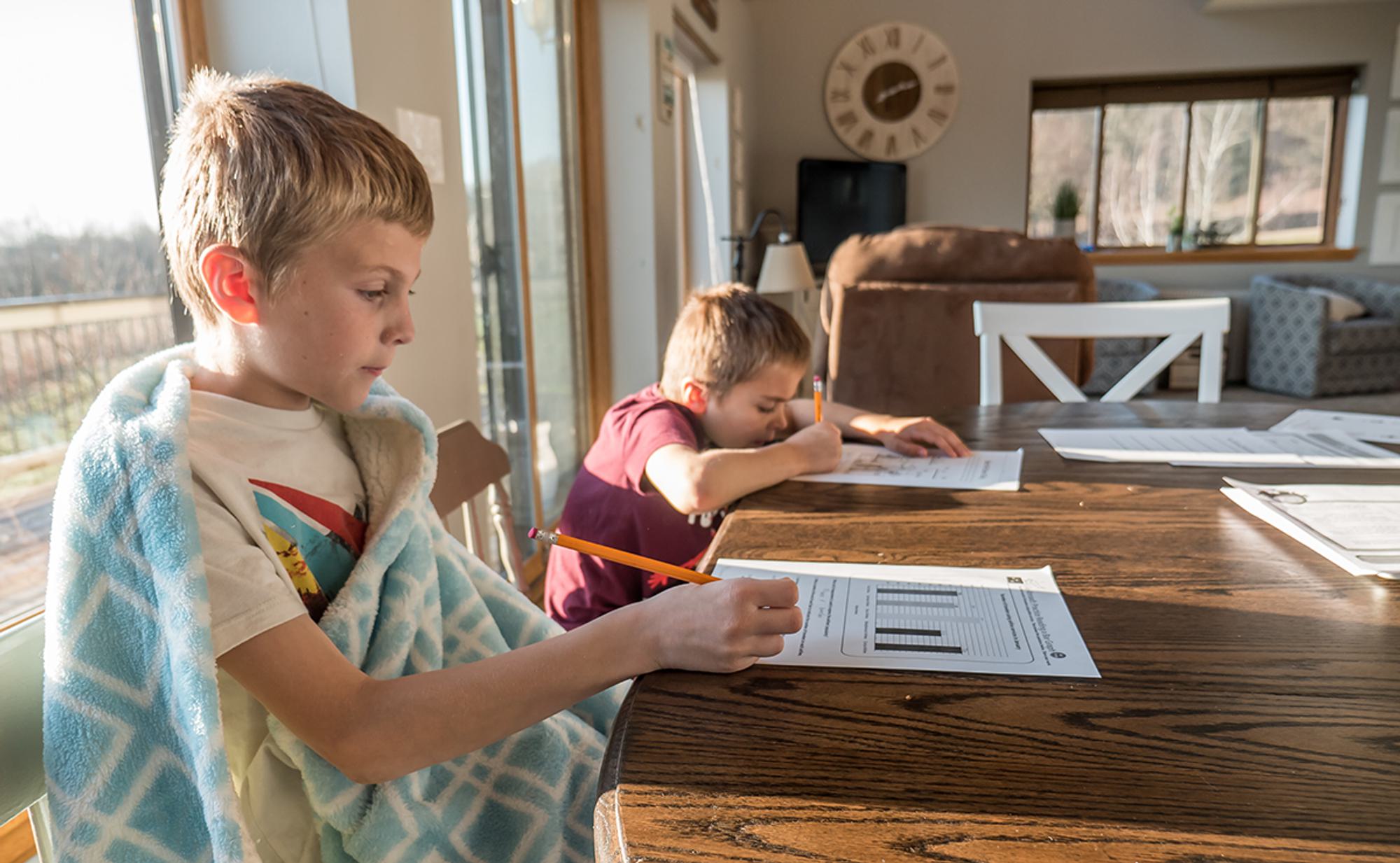
NSPCC: talking to children worried about COVID-19
The NSPCC has shared useful guidance about how to talk to children worried about coronavirus, alongside practical ideas about dealing with isolation: how to structure a day; keeping in touch with family, and helping young people maintain a sense of control. Childline, part of the NSPCC, has also produced this coronavirus information page aimed specifically at young people.
Childline last week reported it has faced "unprecedented demand for its services" in the wake of COVID-19. More than 900 children and young people worried about coronavirus had counselling sessions with Childline between the 21st of January and 22nd March. Sessions peaked on the day (18th March) that the government confirmed UK school closures.
The NSPCC reported that "Over half of young people who spoke to Childline last week about coronavirus were counselled for their mental and emotional health around issues like isolation, arguments at home and removal of professional support from schools and the NHS."
Last week, Youthscape Luton launched a Digital Mentoring program to serve young people in Luton looking for support, you can find out about it here.
The Monday Report: overwhelmed but optimistic
Last week we asked you some questions for the Friday 3x3– a way to take the temperature of the youth ministry community during the Coronavirus pandemic. Every Friday at 3pm we’ll ask three questions which will take you no more than three minutes to answer. We’ve started with a modest 60 responses, so this doesn’t represent the wider community of Christian youth workers – it just gives us a sense of what’s going on.
You can read the full-length breakdown and reflection here, but a brief summary is below:
1. ALL THE FEELS
We provided a list of 25 emotions and asked you to pick up to three that described how you’d been feeling last week. Of the 60 who responded, the top two emotions were ‘overwhelmed’ (38%), ‘optimistic’ (37%) and ‘thankful’ (35%).
It’s not surprising to see that people feel overwhelmed. We have been experiencing something unprecedented and have had to suddenly change our way of life. It’s encouraging to see that, despite stress, there are also feelings of gratitude. We know that thankfulness is crucial for our mental health in times like this, for those with and without faith. It’s interesting to see optimism here. Perhaps it’s the closest to ‘hopeful’, which wasn’t one of the emotions provided but has theological resonance for many of us.
The Monday Report: overwhelmed but optimistic
Head of Research Lucie Shuker breaks down the results of our new weekly survey designed to hear how youth leaders are doing in the midst of COVID-19.
2. ZOOM-STA-GRAM
We asked which tools/platforms you used to communicate with young people since Tuesday, and joint top were Instagram posts and Zoom. Again, this was a small group of respondents, so we can’t take too much from it. But the phrase ‘zoomed out’ has now appeared in our lexicon, reflecting the platform’s meteoric rise in use over the last week and a half. So maybe we can trust the results after all? You know what hadn’t been used by any of our 60 respondents? Skype. Twelve had used email, four had seen young people face-to-face (2m apart) and one had even sent a letter. But no one had used Skype. Farewell, Skype.
3. ONLY CONNECT
Our third question was ‘In your own words, what have young people needed from you this week?’
The most frequent answer was connection. Some kind of contact, check-in, acknowledgment or presence in a crazy week. One person said, “knowing someone is thinking of them.” After that were a number of references to fun. This meant the chance to laugh, celebrate a birthday or engage in “usual banter". Some expressed this as entertainment and others as joy. The third most reported need was for reassurance – that it will be ok, that we are still there or that “it's okay to feel a mixture of emotions in these unusual times”.
Thanks to those who took part! If you missed it why not join us next time – see you Friday at 3pm?
Limitless Podcast
Youth leaders - needing a bit of inspiration before you try and inspire the young people you work with? Check out the Limitless Leadership Podcast - designed to help youth leaders grow and be challenged in their faith.
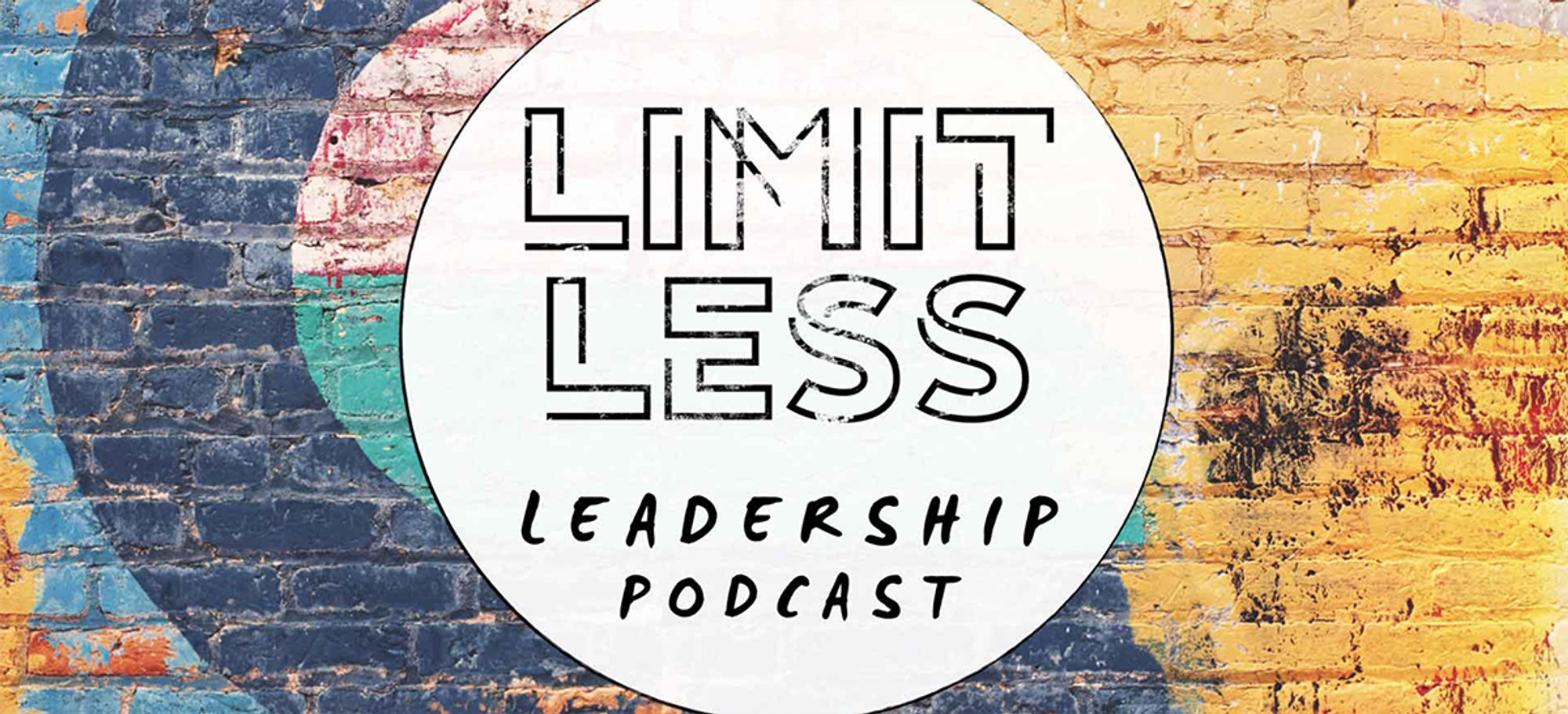
Intro Outro videos
Our friends over at Intro Outro have an excellent, youth-facing YouTube channel that you could point young people towards. Their latest video features the highly practical "24 things to do in isolation". Check it out below!








